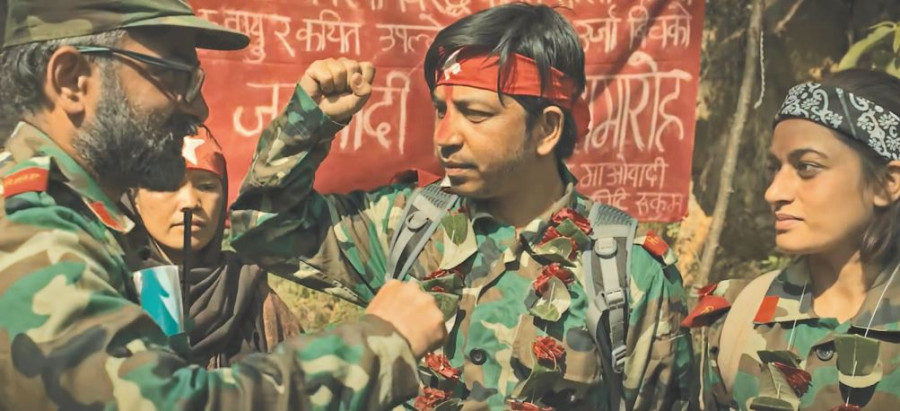Editorial
Too close to the bone
Perhaps there's more truth in the song than what politicians want us to believe.
A song can usually awaken the inner conscience of a person because it has the added element of melody. It tends to touch humans at a much deeper level than dry words. And just so, a song titled ‘Pir’ by Prakash Saput seems to have resonated with Nepalis right across the country, perhaps because there's more truth in the song than the narrative politicians would want us to believe. The video may seem to target a particular political group, but in reality, it reflects the failures of the political actors. A story of Nepalis in general, enduring untold hardships in all areas of life while our representatives sail through life, by no means falls into the genre of fiction writing.
The bone of contention, particularly for some in the political fraternity, could be that the song contains some element of truth that has pricked their inner guilty conscience concerning the delivery of effective governance. But the reason for this outcry against an artist who held a mirror to them seems somewhat unwarranted. Perhaps the real reason for their threat and their demand that the song be pulled down from YouTube has something to do with the proximity of the elections. Why else would our thick-skinned politicians, who are usually unmindful of the populace's daily difficulties, show so much concern?
This is not the first instance when a song has managed to ruffle feathers. A prickly satirical song titled ‘Lootna Sakey Loot Kancha’, shedding light on political cronyism and corruption was sufficient for the cadres of the then ruling Nepal Communist Party to see red for a reason known to them. Unlike this time, singer Pashupati Sharma decided to take down the music video within 48 hours of its release against a backdrop of strongly-worded threats. Despite there being no official government pressure on the issue, what precipitated Sharma to take such a drastic step?
To say that these threats are an attack on the freedom of expression of an individual may be seen as a clichéd phrase, but it surely doesn't change the fact that it is an attack against that right. If the government claims the current system to be a functioning democracy, then there must be space for all and sundry to voice their concerns through any medium they choose. The people's representatives are not above any criticism whether they like it or not. And any effort to stifle the right of expression will undoubtedly be seen by the masses as regressive measures and, more often than not, will lead to undesired results.
It would have been good if only the politicians had concentrated their efforts on genuinely trying to understand the plight and problems of the general masses. Instead, a golden opportunity to provide us with stable governance has been squandered due to political infighting and disputes since they were voted to power. If the political class genuinely feels that they have been unfairly criticised, there is nothing to stop them from listing their achievements of the last five years.




 8.67°C Kathmandu
8.67°C Kathmandu














